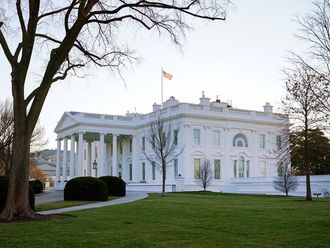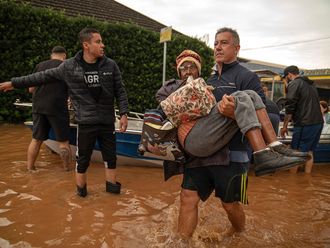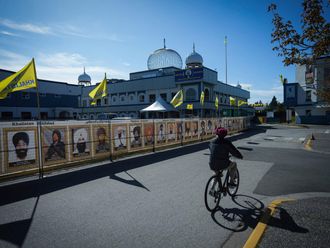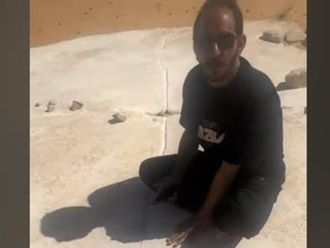Washington: A major House of Representatives committee voted on Wednesday to cut off almost $4 billion (Dh14.6 billion) in aid to the government of Afghanistan pending an investigation into charges that Afghan officials are blocking corruption probes and huge amounts of foreign aid are being stolen.
The bipartisan move by the foreign aid appropriations subcommittee comes after The Washington Post reported that top officials in President Hamid Karzai's government were blocking corruption probes of political allies and amid widespread assumptions that Afghan power brokers are moving millions of dollars out of the country.
The panel's chairwoman, Democratic Representative Nita Lowey, is instead demanding that the Government Accountability Office conduct an audit of billions of dollars of past US aid.
"We have an obligation to every American to ensure that their hard-earned tax dollars are not squandered through corruption and graft," Lowey said.
Military operations funded through a separate bill would not be affected, nor would humanitarian aid. The House was slated to vote as early as yesterday on legislation to finance President Barack Obama's $33 billion military aid request, which would pay for the president's surge of 30,000 troops.
The bill in question, a $53 billion measure funding foreign aid for the coming budget year, retains the money in placeholder accounts that could still be tapped before the October 1 start of the fiscal year.
"I do not intend to appropriate one more dime for assistance to Afghanistan until I have confidence that US taxpayer money is not being abused to line the pockets of corrupt Afghan government officials, drug lords and terrorists," Lowey said.
Representative Kay Granger of Texas, the panel's top Republican, agreed with the aid cutoff.
"The administration's policy of providing direct assistance to the government of Afghanistan assumes a great deal of risk, and with ongoing corruption inside the Afghan government, it is difficult to justify," Granger said.
But Republican Representative Mark Kirk, worried that the move could imperil important projects such as improvements to Kandahar's electrical system, which he said is an important step to winning over the residents of the area to the US mission.












